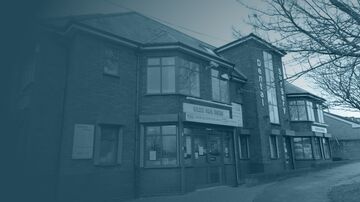
Dental Extractions in the West Midlands
Remove the source of dental pain and protect your oral health with dental extractions. A dental extraction is often a last resort when a tooth is badly damaged by decay. We may also remove teeth to make space for orthodontic treatment.
Removed damaged or decayed teeth with dental extractions
An impaired tooth can sometimes be fixed with a crown or filling, but if the damage is too severe, then the tooth will need to be removed from its socket. This is to prevent unnecessary pain and avoid subsequent problems caused by untreated teeth. Wisdom teeth are often extracted due to the potential pain they cause and because of their difficult impacted position behind molar teeth.
A child or younger adult may need a tooth extraction if milk teeth are contaminated, if a tooth has suffered trauma, or due to the overcrowding of permanent teeth. An adult may require a tooth extraction if an abscessed tooth doesn't respond to root canal treatment or if periodontal disease has caused the bone to deteriorate and therefore unable to support the teeth effectively.
The benefits of extracting a tooth
- Remove the source of pain
- Prevent further decay
- Quick treatment option
- Restorations available
What is a tooth extraction?
Tooth extraction may be required for a number of reasons, most commonly because a tooth is too damaged or decayed to be repaired. Our professional dental team are well-equipped to perform tooth extractions for children and adults.
There are two types of tooth extraction available on the NHS or through private dental care. The first is a simple extraction of a tooth visible above the gum line that can be loosened and pulled out. The second is a surgical extraction, which is a complex technique used to remove a tooth which is below the gum or has broken away at the gum line.
I get worked up about going to the dentist [but] I will definitely ask to see Samson again as it makes all the difference when you have a pleasant dentist.
NHS Pricing bands
Transparent pricing for NHS treatments
Patient charges correct as of April 2023
We're accepting new NHS patients
Treatment Band One
- An examination and diagnosis (e.g. x-rays)
- Advice on how to prevent future problems
- A scale and polish, if required
If you need to see a dentist immediately, an urgent NHS appointment costs £23.80.
£26.80
Treatment Band Two
- Everything in band one, plus...
- Any further treatment such as fillings or root canal work
- Extractions, if your dentist needs to take out one or more teeth
£73.50
Treatment Band Three
- Everything in bands one and two, plus...
- Crowns, dentures or bridges
- This includes more complex procedures.
You only pay once for the highest treatment band, even if multiple treatments are required.
£319.10
Frequently asked questions
How can we help?
The time it takes to extract a tooth will depend on whether the tooth is visible or not. A simple extraction can be completed in just a few minutes, whereas a surgical extraction may take up to an hour.
A local anaesthetic will be used to numb the area around the tooth, so you shouldn't feel any pain during the treatment. You might feel pressure but no pain. You may experience some discomfort afterwards as the anaesthetic wears off.
As with any type of surgery, there is a small risk of complications such as infection, bleeding or damage to surrounding teeth. Our experienced dental team will minimise the risks as much as possible. We will also give you complete aftercare instructions to help you care for the extraction site at home.
We generally recommend waiting at least two weeks before having a restoration such as a denture, bridge or implant. This gives the extraction site time to heal properly.
Do you still have questions?
We offer excellent care and advice regarding our wide range of treatments to all of our patients.
Contact our main practice
0121 561 3526Find your nearest practice
Hear from our happy patients













